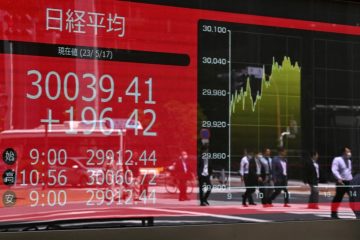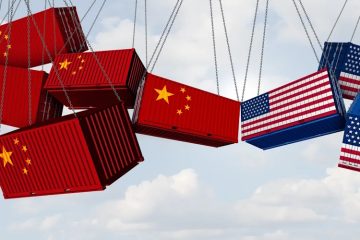Property stocks in China rise as cities reveal rescue measures

Shares of Chinese property developers have experienced a significant surge as there are growing expectations that the Chinese government is taking steps to address the excess housing supply and revitalize the struggling real estate sector.
In afternoon trading on Thursday, the Hang Seng Mainland Properties Index, which monitors Chinese property developers listed in Hong Kong, experienced a 5.6% increase. Sino-Ocean and CIFI experienced significant increases of 46% and 29%, respectively, while Longfor, China Vanke, Agile, and Sunac China all saw gains of over 10%.
The gains were driven, in part, by the announcement on Wednesday that officials in Hangzhou, a major city near Shanghai, would start purchasing private residential units in a district with an excess of homes. These units will be utilized for public housing, contributing to the positive market performance. Announcements of similar plans in the far western city of Dali on Thursday also proved beneficial.
These actions were announced shortly after Nanjing city’s commitment to support housing renovation and purchase for public housing, and Foshan city’s plan to involve state-owned enterprises in a housing trade-in initiative.
Experts noted that the plans, although only applicable to a few cities, carry considerable importance. These developments occur several weeks after high-ranking officials in Beijing indicated a significant change in policy, with a focus on addressing the surplus of housing in China and increasing the availability of public housing.
Experts at the time suggested that Beijing seemed to be preparing for potential rescue measures, which could include significant relaxation of home-buying restrictions or substantial government spending to acquire existing housing inventory. According to experts, resolving the issue of excess inventory and providing financial support to cash-strapped developers could be achieved if the government acquires a significant number of unsold homes, particularly those owned by private developers.
According to Morningstar analyst Jeff Zhang, Hangzhou might be interested in piloting a trade-in scheme in a district that has a more urgent need to clear inventory. According to an expert, as more cities witness Dali’s example, there is an anticipation of increased government purchases of existing homes, especially in the lower-tier segment that experienced a significant decline in sales.
According to analysts Jizhou Dong and Riley Jin from Nomura, there has been a noticeable shift in policy that is more positive. They specifically highlight the easing of home buying restrictions in major cities in recent weeks. They stated that local governments may have little remaining capacity to bolster the property sector, suggesting that the responsibility now falls on the central government to implement impactful measures, such as acquiring unsold homes.
The property sector in China has been experiencing a prolonged downturn. The decline in sales of property developers has been exacerbated by a slowing economy and weak consumer sentiment, resulting in a liquidity crisis for many of them. Due to their inability to access debt markets, numerous developers have failed to meet their loan and bond payment obligations, resulting in bankruptcy for some.
Beijing has made efforts in the past to stimulate the real-estate sector by offering citizens more affordable home loans and easing home-buying restrictions. Nevertheless, these efforts have not been successful, leading authorities to discuss in last month’s Politburo meeting the need to shift their focus towards absorbing the surplus apartment supply in order to address the property crisis.










